Two Reasons Why the Housing Market Won’t Crash

You’ve probably heard some chatter about the economy lately, maybe even some whispers about a possible recession. And let’s be real, that kind of talk tends to make people nervous about the housing market. But here’s the good news—there’s no need to panic. The housing market isn’t about to crash. Let me explain why.
Real estate journalist Michele Lerner defines a housing market crash as when “home values plummet due to a lack of demand for homes or an oversupply.” With that in mind, here are two key reasons why a crash just isn’t in the cards right now.
1. Demand for Homes Is Higher Than Supply
One of the biggest reasons behind the 2008 housing crash was an oversupply of homes. There were just too many houses and not enough buyers. Well, today’s market is the complete opposite of that.
Generally speaking, a balanced housing market has about a six-month supply of homes. That means there’s enough inventory to meet demand without prices falling or spiking. Now, let’s take a look at where we stand today, thanks to some data from the National Association of Realtors (NAR).
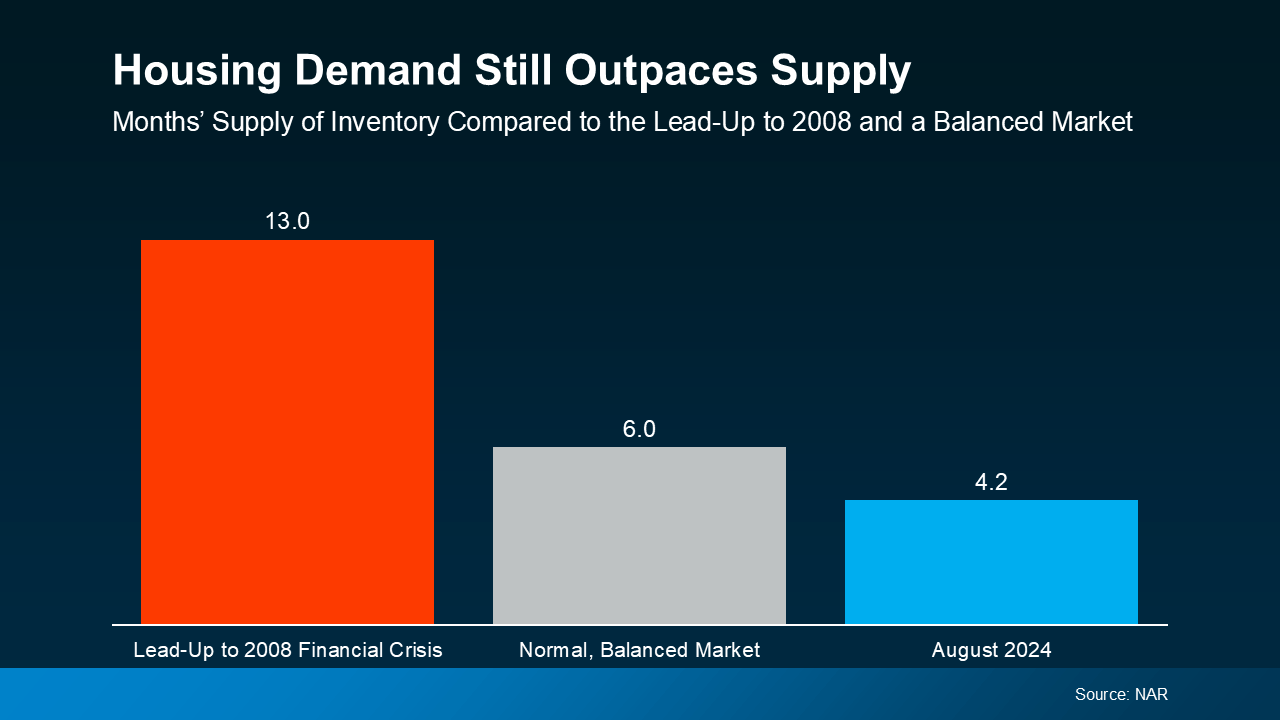
In the lead-up to the 2008 crisis, there was a whopping 13-month supply of homes—far too much. Today, though, we’re looking at just 4.2 months of supply. That’s well below what’s considered balanced, which means demand is outpacing supply big time. When there are more buyers than there are homes available, prices tend to stay stable or even increase—not crash.
Now, to be fair, inventory levels can vary depending on the market. Some areas might be more balanced, while others could have a slight oversupply, which could affect local prices. But nationally, the housing market is dealing with a shortage of homes. That’s a huge difference compared to 2008.
As Lawrence Yun, Chief Economist at NAR, puts it:
"We simply don’t have enough inventory. Will some markets see a price decline? Yes. [But] with the supply not being there, the repeat of a 30 percent price decline is highly, highly unlikely."
Want more insights on Baltimore specifically? Check out my post on Is Now the Right Time to Buy a Home in Baltimore?.
2. Unemployment Is Still Low
Another key factor that drove the 2008 crash was unemployment. As people lost their jobs, they couldn’t make mortgage payments, which led to a wave of foreclosures. That, in turn, put more homes on the market, causing prices to plummet. But today’s employment picture looks a lot different.
Here’s a quick look at where unemployment stands right now compared to the 2008 crisis and the long-term average:

Back in 2008, unemployment was sky-high at 8.3%. The 75-year average is around 5.7%. And today? We’re sitting at just 4.1%. More people are working, which means more people can make their mortgage payments. That’s a big reason why we’re not seeing a wave of foreclosures like we did back then. In fact, with so many people still working, we’re seeing plenty of demand for homes, which helps keep prices up.
To get more context on how employment and housing market trends are playing out in Baltimore, you might want to check out Top 5 Things to Know About the Baltimore Housing Market.
Today’s Housing Market Is Stronger Than in 2008
It’s totally natural to feel uneasy with all the talk about a recession and economic uncertainty. But the housing market today is nowhere near where it was in 2008.
As Rick Sharga, Founder and CEO of CJ Patrick Company, says:
"Literally everything is different about today’s housing market dynamics than the conditions that led to the housing crisis."
So, what does that mean for you? Simply put: Demand for homes is still high, supply is low, and people are working. These key factors are going to keep the housing market stable, preventing a repeat of the 2008 crash.
Bottom Line
Look, the housing market today is in a much better place than it was in 2008. But remember, real estate is local. So, if you have any questions about how these national trends are impacting our Baltimore market, feel free to reach out. I’m here to help you navigate it all and make the best decisions for your situation.
If you want to dive deeper, check out my post on Why Baltimore Is Still a Hot Real Estate Market in 2024.
Categories
Recent Posts
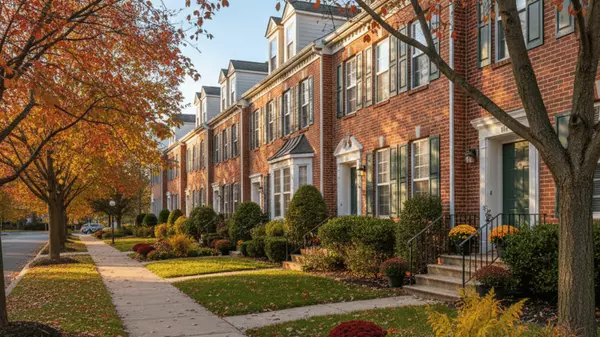
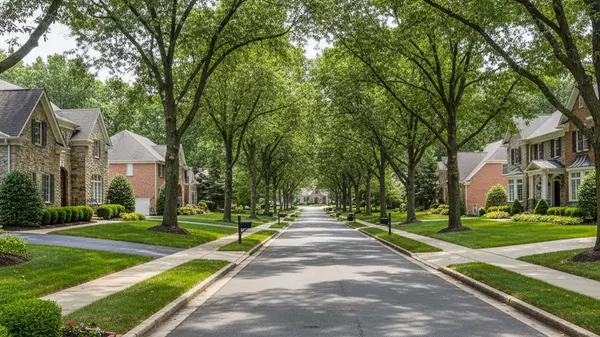

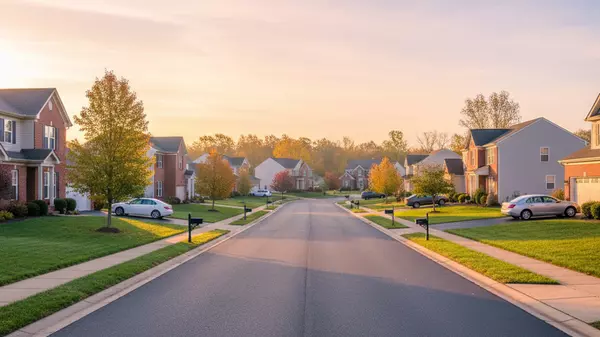



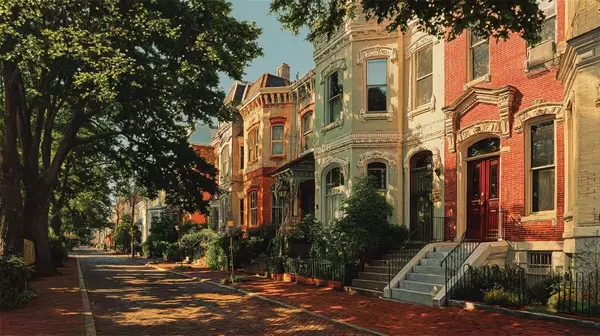
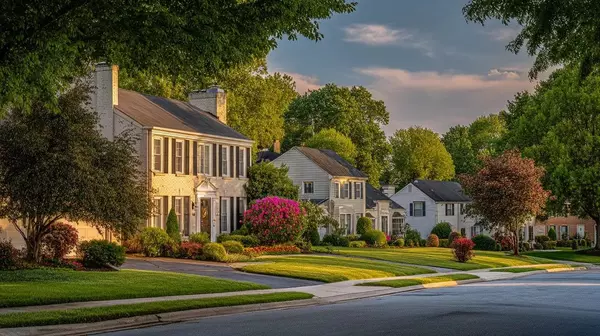
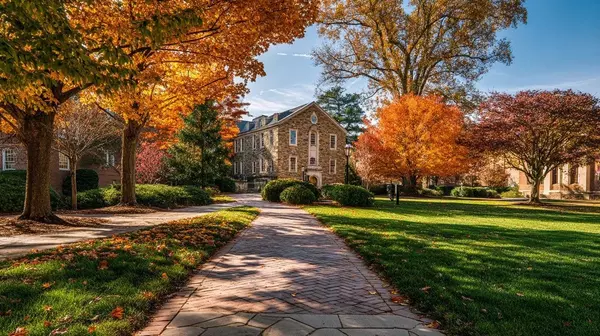
GET MORE INFORMATION

